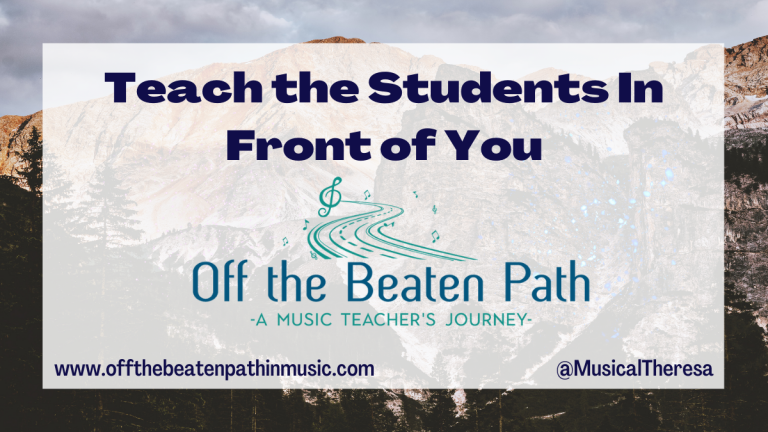Don’t Ask What, Ask Why
Last week my school district made what I’m sure was a tough decision: we will start the year virtually. While I know there are many viewpoints on this subject, I’m not here to debate them, I feel relieved that I can now make plans for this upcoming, unprecedented, school year.
A lot of the content on social media related to virtual and distance learning has to do with the latest and greatest tools. And this is understandable! The tools will be very important when crafting quality virtual lessons, and I have written many blog posts about how to use these various tools. However, before we figure out what to teach and what tools to use, I believe we have to start by figuring out our why.

I referenced Simon Sinek and his book, The Infinite Game, in my last blog post. Sinek argues that those playing the infinite game aren’t playing to win, they are playing to perpetuate the game. When thinking about that in terms of music education, by playing the infinite game, we focus on students becoming life long musicians. (Check out that blog post here: Playing An Infinite Game.)
Another well-known book by Simon Sinek is Starts With Why. Here, Sinek talks about having a firm understanding of your why: why you do what you do. He says, “People don’t buy what you do, they buy why you do it.” He describes many successful organizations with a strong understanding of their why. Apple is a great example. If you haven’t seen Sinek’s TED Talk on this topic, How Great Leaders Inspire Action, I highly recommend it.
I was reminded of this concept again last week during the University of Minnesota Wind Band Conductor and Educator Virtual Summit. Dr. Emily Threinen, Director of Bands at the University of Minnesota discussed the importance of knowing our why in conducting and teaching music. She encouraged us to first think about why we do what we do, then how we do it, and finally what we are doing. When you can articulate your beliefs in this why-how-what pattern, (as opposed to what-how-why) your words have more meaning for you personally, and for others, such as your students, administrators, and audience members.
Taking this back to our classrooms in the fall, we have to look for our “why.”
- Why do we love music?
- Why did we want to teach music?
- Why should students have music in school?
- Why should students want to be in our music classes?
When we think about the why first, other questions like, “how should I arrange the classroom” or “what tech tools should I use” will fall into place easier. We can stop worrying about what to teach and focus on why we are teaching it. The tech tools are vehicles for achieving this why.
Over the next few weeks I will think deeply about my why. This will help me move forward with plans for the upcoming school year. It’s still a work in progress, but here is what I know so far:
Music is part of what makes us human. Through it we gain a means of expression, communication, and creativity. I want my students to achieve this by making music, exploring a wide variety of music, including varying styles, genres, composers, and performers, and experiencing music as something relevant to their lives.
As many of us will need to reimagine our music programs in response to the various Covid-19 safety protocols, this becomes the time to ask why we do some things we have always done. Do various events and lessons have the same value they used to? Are they still relevant? Culturally responsive? Meeting the needs of all students? If not, take a step back and look at your WHY. It holds all the answers!
Winston Churchill was known after WWII for saying, “never let a good crisis go to waste.” We have that opportunity now. Take the time to examine your why and create experiences for your students that match.

